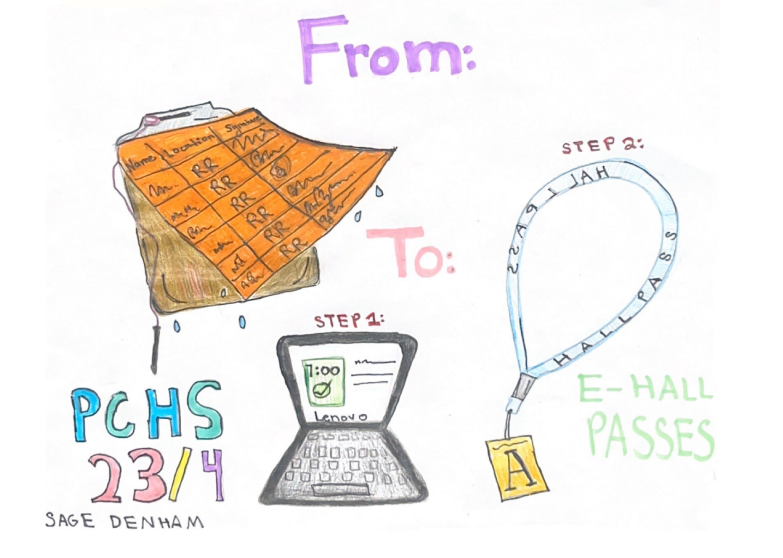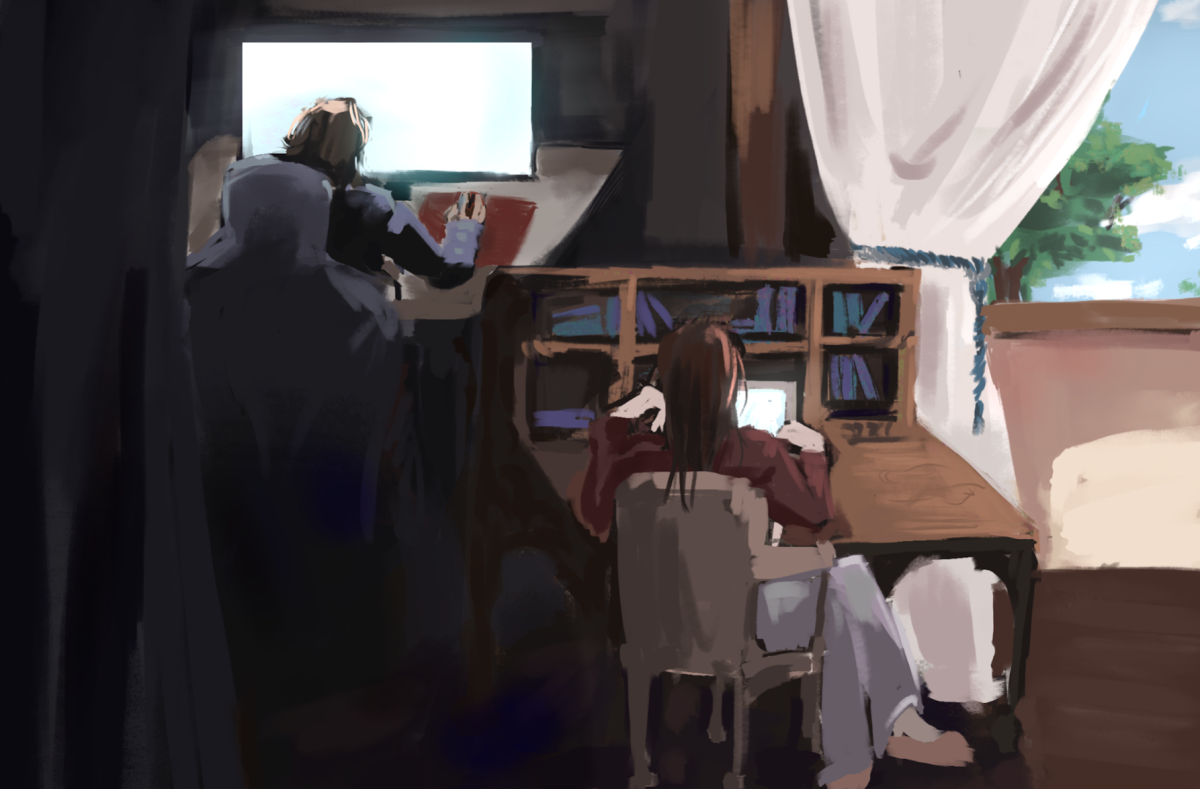At the beginning of the school year, Pali administration implemented new ways of supervising student activity on campus. Among these were 1:1 devices, stricter phone rules and E-Hall passes.
While teachers previously signed off on paper hall passes on clipboards to allow students to leave the classroom, the new E-Hall pass system requires digital approval from teachers. Students must use the E-Hall pass website to request to leave their classroom, whether it be to use the restroom, see the nurse, visit another teacher or go to any administrative office. Teachers then approve the request on their device, and the student must wear a physical pass and return to class within a seven-minute window for bathroom breaks.
Director of Academic Achievement Monica Iannessa said that Pali teachers and Mr. Licea came up with the idea and implemented the passes over summer break.
According to Iannessa, Pali formerly was “suffering from vandalism, and there was no good way to track who was where to even decrease [it].”
“[The E-Hallpass] gives us a chance to actually narrow down who might be abusing the past system and be able to talk to them and figure out what’s going on,” she said.
Pali administration realized last year that using the paper pass was outdated, according to Iannessa.
“It became what I would call a revolving door of clipboards,” she said. “There were constant, constant movements out of the classroom and rotation of those clipboards to the effect that it was starting to make our hallways disorderly and at times very unsafe.”
Iannessa also said that the previous system made student activity difficult to monitor.
“Other than trying to decipher handwriting on used sheets, there was really no expedient way to collect data on the whereabouts of students,” she said.
Iannessa added that if students are in conflict, teachers can now prevent them from leaving class at the same time.
“These kinds of things have made our hallways calm, orderly and safe,” she said.
French teacher Eva Pichlbauer believes that the new system still has room for improvement.
“[The E-Hall pass] does interrupt class,” she said. “However, I don’t think it has a huge effect on class time, because there are many other interruptions in the class, too.
“Typing in the student’s name distracts me from teaching a foreign language and sort of throws me off,” she added.
The new E-Hall pass system has also caused some controversy among Pali students. Senior ASB member Noah Nguyen said he felt upset and frustrated when he first heard of the new system.
“I didn’t understand where [administration] was coming from,” he said. “I felt that they implemented [the system] way too quickly and too abruptly.”
Unlike the 1:1 computer program, the E-Hall passes were implemented without holding student meetings or giving students prior notice at the start of the 2023-24 school year.
Nguyen said that the time limit should be extended to ten minutes so students can have enough time to use the restroom.
“The security guards have digital devices to check students who are out more than seven minutes,” he said. “Security will come to the classroom and ask where they are, which is pretty disruptive.”
Despite all the varying opinions, E-Hall passes are expected to remain at Pali.
“Even with the controversy, I understand the need for teachers to regulate student activity out of the classroom,” Nguyen said. “However, I strongly believe the system has room for improvement and growth with student concerns or involvement calling for a compromise.”










